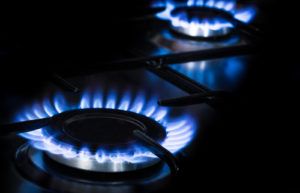Ofgem has announced that the energy price cap is set to increase by £693 from 1st April 2022 which is likely to affect around 22 million households. In this article, we explain why energy bills are increasing, whether you should fix your tariff and how you can save money on your energy bills.
Why are energy bills increasing and by how much?
From 1st April 2022 energy bills are set to increase by £693 from £1,277 per year to £1,971. Pre-payment customers can also expect an increase of £708 which takes annual bills from £1,309 to £2,017. The increase is a result of wholesale prices quadrupling in the last year and a record rise in gas prices globally over the past 6 months. Energy suppliers are therefore paying more to supply energy to households and without an increase in energy prices, will not be able to afford to supply energy to customers for less than they have paid for it. Ofgem says that the last energy price cap update in August 2021 did not reflect the rise in gas prices that we have seen in recent months.
Jonathan Brearley, chief executive of Ofgem, said:
“We know this rise will be extremely worrying for many people, especially those who are struggling to make ends meet, and Ofgem will ensure energy companies support their customers in any way they can.
“The energy market has faced a huge challenge due to the unprecedented increase in global gas prices, a once in a 30-year event, and Ofgem’s role as energy regulator is to ensure that, under the price cap, energy companies can only charge a fair price based on the true cost of supplying electricity and gas.
“Ofgem is working to stabilise the market and over the longer term to diversify our sources of energy which will help protect customers from similar price shocks in the future.”
What is the energy price cap?
The energy price cap is set by energy regulator Ofgem and is designed to protect consumers from overpaying on their energy bills. The energy price cap sets a maximum limit that a supplier can charge you for each unit of energy as well as the standing charge you have to pay to your supplier. Ofgem sets the price cap to reflect a change in various costs such as a change in wholesale energy costs and network and operating costs. The price cap is reviewed every 6 months by Ofgem because energy usage varies throughout the year and the changes are normally implemented in April and October. Despite this, the energy price cap does not mean that your bill cannot go up or down depending on how much energy you use as the price set is based on each unit of gas and electricity, not how much you use as a household or how much you pay in total.
Who is affected by the energy price cap increase?
Those on a default tariff with an energy supplier will be affected by the energy cap price increase. This means that if you have not recently switched to a fixed deal with your supplier or you were switched to a new supplier, due to your last supplier going bust, you are likely to see an increase in your energy bills. If you are on an existing fixed-rate deal you will not be affected by the energy price cap increase until your deal comes to an end.
What does this mean for household bills?
From 1st April 2022 around 22 million customers are likely to see an average increase of £693 a year. Around 4 million of these customers are on pre-paid meters and can expect an average increase of £708 a year. It is worth remembering that the new energy price cap of £1,971 is not the maximum you would pay, it is simply an average and so if you use lots of gas and electricity, you are likely to pay more.
Is now the right time to fix your tariff?
Previously, one of the easiest ways to save money on your energy bills was to switch energy providers or to switch to a fixed-rate deal. However, there are now few deals in the market that are cheaper than the standard tariff so you may be better off sticking with your supplier's standard tariff.
How to reduce the cost of your energy bills
If you are worried about the increase in energy bills you may be able to make savings on your household energy usage instead. We share some useful energy saving tips below, but for more tips on reducing the cost of your household bills and energy usage, read our article, 'How to save money on your household bills'.
- Use energy-saving lightbulbs
- Draught proof your home to retain heat
- Turn your thermostat down by 1 degree
What can I do if I cannot afford the energy price increase?
Ofgem has said that customers struggling to pay their energy bills should contact their energy supplier for help. You may also be able to save money on your energy bills if you are eligible for some of the government grants and support schemes, read our article 'Grants and schemes for help with your energy bills' to see if any of the schemes apply to you.
The government also announced this morning that some households may be eligible for help towards their energy bills. More information can be found in our article, 'Energy price cap increase: 'How will the rebates work and who will benefit?'







